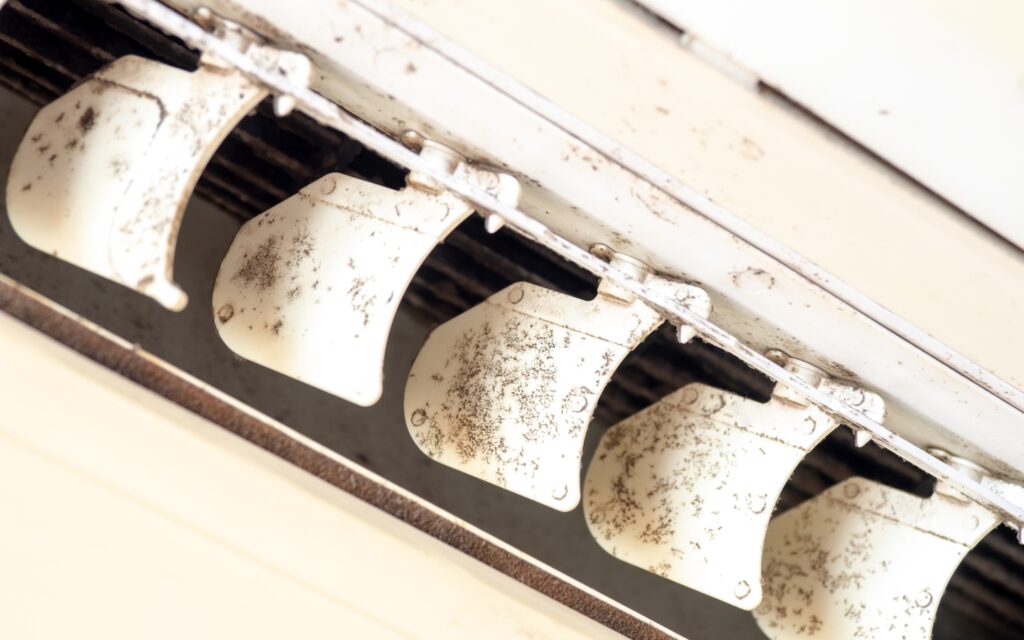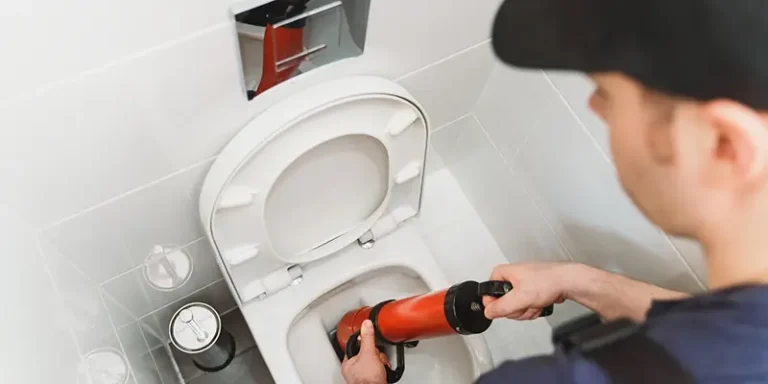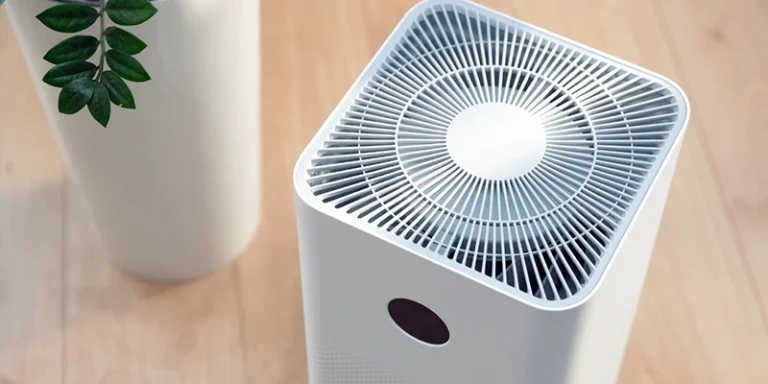Mold growth in air conditioners is a common concern for most homeowners. It not only affects the air inside but also makes the unit less efficient.
Using vinegar is a common DIY solution to fight mold in air conditioners. However, the one-million-dollar question is “does vinegar kill mold in air conditioners, and is it a safe and effective method for mold control in AC?
In this article, I’ll dig deep into the science behind vinegar as a mold remover, how it’s used in air conditioning systems, the potential risks and benefits, alternative methods, and tips for preventing mold growth in air conditioners.
How does mold get into air conditioners?
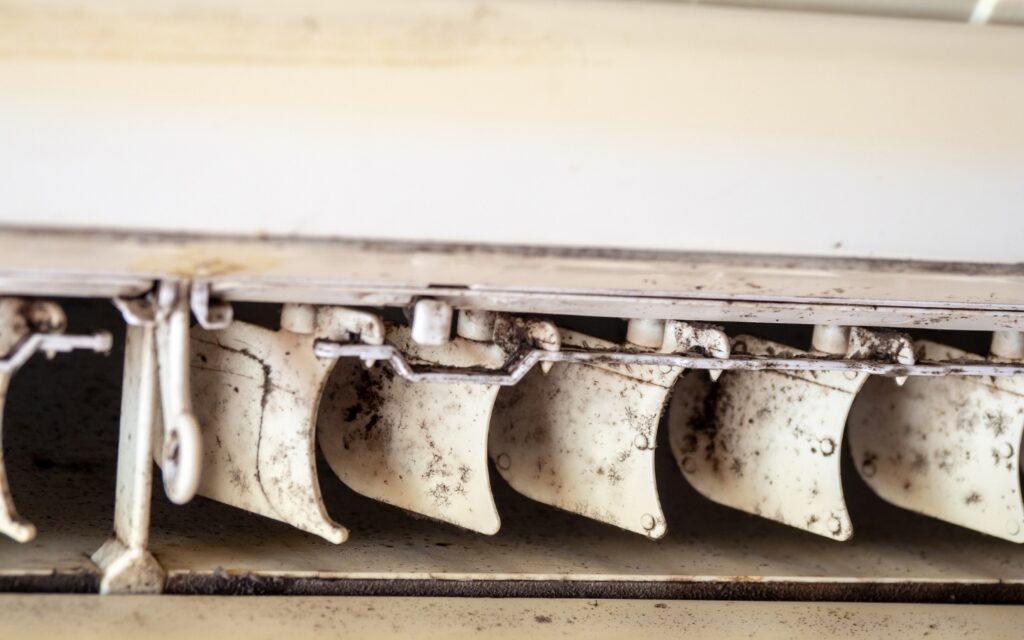
Before diving into how well vinegar combats mold in air conditioners, it’s important to grasp what causes mold to grow in these systems. Mold loves damp, dark places with organic stuff for it to feed on, which is why air conditioners are the perfect thriving ground for it.
Moisture gathering in air ducts, water collecting on coils, and dust and dirt piling up all create the perfect environment for mold spores to spread.
If you are wondering Is Mold in Window AC Unit Dangerous, read our blog post here to find out!
The science behind vinegar as a mold remover
Many people recommend using vinegar, especially white or distilled vinegar, as a cheap and natural way to get rid of mold.
The main ingredient in vinegar, acetic acid, has significant antimicrobial properties that can stop certain bacteria and fungi, like mold, from growing.
When you put vinegar on surfaces, it can seep into materials like wood or fabric and mess up the cell walls of mold, which destroys it in the end.
Applying Vinegar to Air Conditioners
To use vinegar to get rid of mold in air conditioning units, you usually mix vinegar with water and put it on parts like coils, drip pans, and air ducts where there’s mold.
Vinegar’s acid breaks down mold and mildew, so it’s easier to clean them off.
But, it’s important to be careful and follow safety rules and the maker’s instructions manual when using vinegar to clean air conditioner parts, so you don’t damage anything sensitive parts.
Pros and Cons of Using Vinegar
Although vinegar provides a natural and cheap way to get rid of mold, it’s important to think about its advantages and disadvantages. One good thing about vinegar is that it gets rid of the mold well and stops it from regrowth if used appropriately.
Also, vinegar is safe and good for the environment because it’s not toxic. It’s a better choice than strong chemical cleaners.
But, vinegar might not work well on all kinds of mold or if there’s a lot of mold. You might need to use it many times to get the best results.
While using vinegar to kill mold in air conditioners has its advantages, there are also risks that should be considered. The acidic nature of vinegar can damage certain materials like aluminum coils, rubber seals, and plastic parts if you don’t dilute it with sufficient water or wash it thoroughly.
Plus, inhaling vinegar fumes while cleaning can irritate your respiratory systems, especially if you have asthma or are sensitive to strong smells.
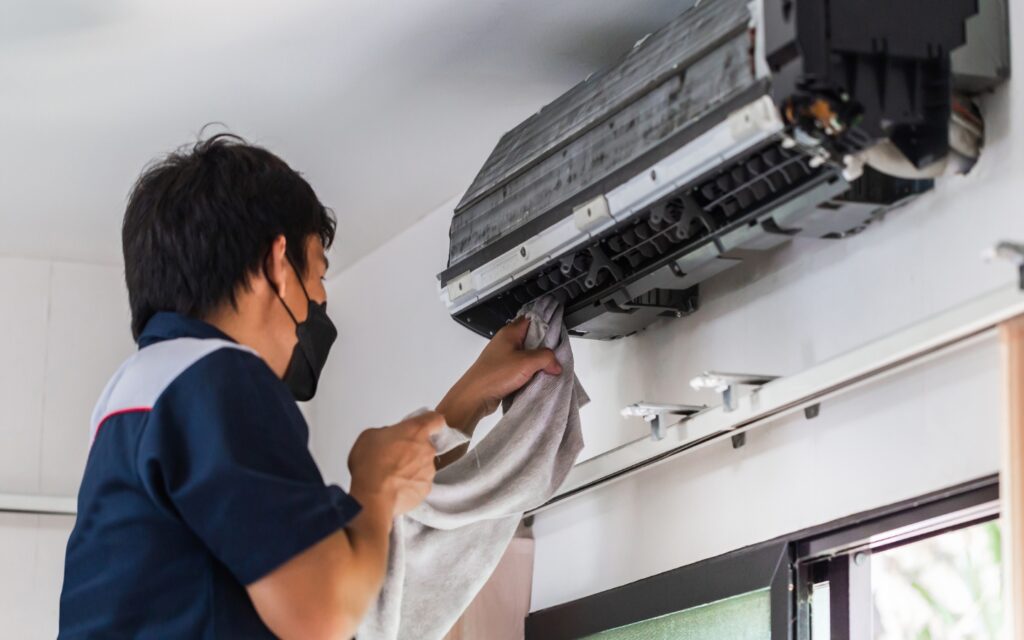
Alternative Methods for Mold Removal in Air Conditioners
If you’re not sure about using vinegar or if the mold is really stubborn, there are other ways to get rid of mold in air conditioners. You can use special mold removers made for HVAC systems that work well.
Also, hiring pros to clean and check your air conditioner can be a good idea. They can make sure your system is mold-free and give it a thorough cleaning.
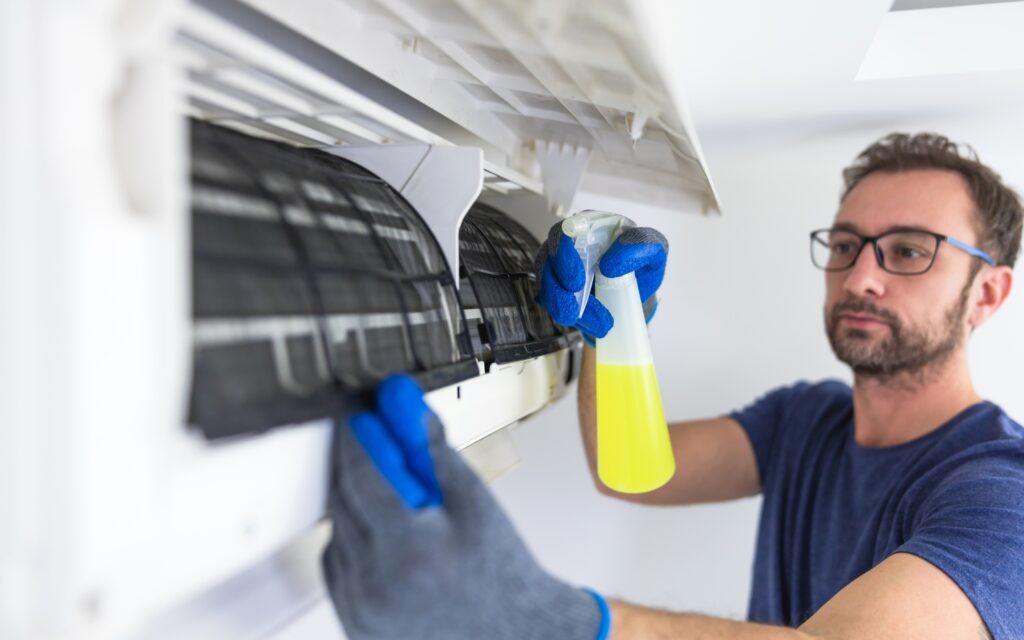
Preventing Mold Growth in Air Conditioners
Stopping mold from growing in air conditioners is important. Doing regular upkeep like cleaning or changing air filters, checking and cleaning coils, and making sure water drains away and air can get through the well can stop moisture from building up and lower the chance of mold growing.
If you live where it’s humid or damp, using a dehumidifier can also help keep indoor humidity down and stop mold from spreading.
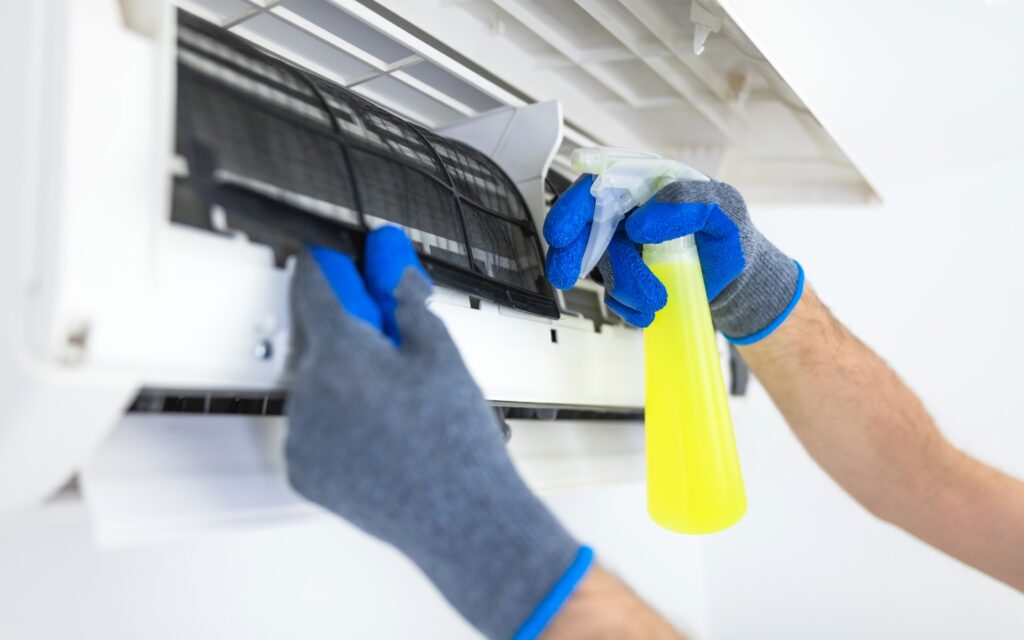
Frequently Asked Questions
1. Does vinegar effectively kill mold in air conditioners?
Certainly! Vinegar is recognized for its ability to effectively eliminate mold in air conditioning units. Its primary component, acetic acid, possesses antimicrobial characteristics that can hinder the development of mold and mildew.
2. Is vinegar safe to use for removing mold in air conditioners?
Using vinegar to eliminate mold in air conditioners is usually safe. Nonetheless, it’s important to take precautions like diluting vinegar with water and ensuring adequate ventilation to reduce exposure to vinegar fumes.
3. How do I use vinegar to eliminate mold in my air conditioner?
When using vinegar, make a solution by combining vinegar with water, then apply it to the affected parts of the air conditioner, like coils, drip pans, and air ducts. Let the solution sit for a while before wiping it away.
4. Are there any risks associated with using vinegar to kill mold in air conditioners?
Though vinegar is typically safe, there are potential risks linked to its continuous usage. The acidic properties of vinegar might corrode certain materials within the air conditioning units if not appropriately diluted or rinsed off.
5. Can vinegar completely eradicate mold in all parts of an air conditioning system?
Vinegar can efficiently eradicate mold in numerous sections of an air conditioning system. However, its effectiveness might fluctuate depending on the severity of mold growth and the nature of materials used in the system.
6. Are there alternative methods to vinegar for getting rid of mold in air conditioners?
Indeed, there are alternative approaches available, such as utilizing commercial mold removers tailored for HVAC systems or enlisting professional cleaning services for comprehensive inspection and maintenance.
Conclusion - Does Vinegar Kill Mold In Air Conditioners?
In summary, vinegar has shown it can be effective in removing mold in most cases, but its effectiveness in air conditioners might change based on how much mold there is and what materials the system has.
While vinegar is a natural and environmentally friendly option instead of using strong chemicals, it’s important to be careful and do things the right way to avoid damaging air conditioner parts.
Overall, the best way to stop mold in air conditioners is to prevent it from growing in the first place. That means doing regular maintenance and keeping the system dry will stop the mold from coming back into air conditioning units. If you’re looking for proffesional help with maintaining your air conditioner, contact our nearby airconditioning maintanence service.




